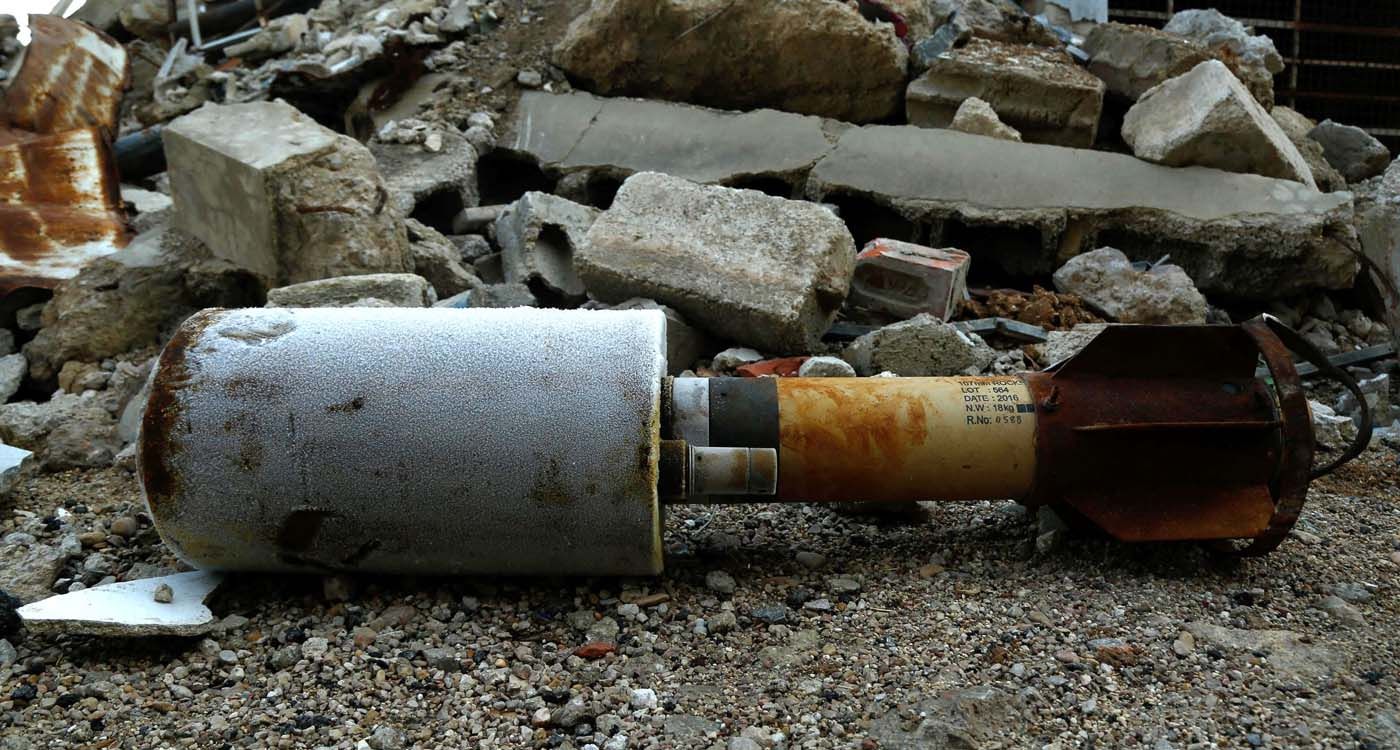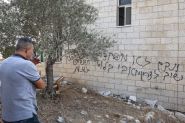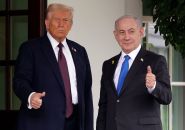- Home
- Middle East
- The Deadly Legacy of the Assad Regime

©Hasan Mohamed / AFP
More than a decade after the start of the Syrian conflict, concerns about chemical weapons remain.
Despite Damascus officially joining the Chemical Weapons Convention (CWC) in 2013 and efforts to destroy its arsenal, multiple indicators suggest the presence of undeclared residual stockpiles. Recent developments — including Israeli airstrikes, concerns raised by the Organization for the Prohibition of Chemical Weapons (OPCW) and mutual accusations — highlight that this issue remains a major concern for both regional and international security.
Syria’s Accession and Persistent Disarmament Challenges
On August 21, 2013, the Assad regime forces used missiles containing sarin, a highly dangerous neurotoxic substance, killing more than 1,400 Syrians. This was not an isolated event. According to NGO reports, the Ghouta attack was part of a broader pattern of chemical violence in Syria, with over 200 such attacks against civilians, documented since the start of the civil war. Following the Ghouta attack, Syria joined the CWC.
Under the OPCW’s supervision, a program was initiated to destroy Syria’s chemical weapons arsenal. However, several reports revealed gaps and inconsistencies in Syria’s officials declarations.
According to OPCW Director-General Fernando Arias, 19 issues remain unresolved, some involving “large quantities of undeclared or unverified chemical warfare agents and munitions.”
“It’s possible that the efforts undertaken did not result in complete destruction,” explains Olivier Lepick, a military historian and chemical weapons expert, in an interview with This is Beirut. “We believed that Russia, which had committed to ensuring the elimination of the Syrian arsenal, had fulfilled its role, but if Israel is still targeting sites today, it means stocks remain.”
General Dominique Trinquand, an international relations specialist, confirmed to This is Beirut that doubts persist: “The OPCW has been working for years to get answers to its questions without being able to close the file. It’s likely that some facilities and weapons were not declared and remain hidden.”
Preventing Proliferation: An International Challenge
In early December, Israel conducted a series of targeted strikes against suspected chemical weapons facilities in Syria. The stated goal was to prevent these arsenals, inherited from Bashar al-Assad’s regime, from falling into the hands of radical Islamist groups, particularly following Damascus’ fall to rebels, including Hay’at Tahrir al-Sham (HTS).
“Israel seeks to neutralize potentially dangerous military capabilities, including chemical weapons, to ensure they are not used against it or by extremist groups,” says Dominique Trinquand. Olivier Lepick adds, “From the Israeli perspective, the argument of chemical weapons justifies airstrikes, which are illegal under international law. In practice, a well-executed strike destroys the stockpile without causing significant chemical dispersion, as the heat of the explosion destroys the toxic agent.”
The Syrian issue goes far beyond the regional context. The United States, in coordination with several Middle Eastern countries, closely monitors the situation to ensure remaining stockpiles do not fall into the wrong hands.
Meanwhile, there is concern that other non-state actors could exploit the instability in Syria. The emergence of weaponized pharmaceutical agents (PBAs), such as fentanyl, in the hands of groups supported by Iran is already alarming some experts. While these substances are less devastating than conventional neurotoxins, they can easily be used for kidnappings or targeted attacks.
HTS’s Pledge and Questions of Credibility
The HTS group has declared that it would “under no circumstances” use any chemical weapons it might seize. This statement appears intended to reassure the international community. However, the credibility of this pledge remains uncertain.
“HTS is trying to appear more acceptable and present itself as more legitimate,” analyzes Dominique Trinquand. “But if they managed to acquire chemical agents, the temptation to use them as a tool of blackmail or deterrence cannot be ignored.” Olivier Lepick also questions their intent: “This is a diplomatic position. Only time will tell if these commitments are upheld, especially in the fog of war and territorial realignments.”
Pursuing International Justice
Victims of chemical attacks, such as the one in Douma in 2018, are now demanding justice. Complaints have been filed against the presumed perpetrators of these war crimes, with the aim that the masterminds will one day face trial in an international court.
However, the legal obstacles are significant. “There are procedures, and investigations are being conducted by various bodies, including the International Criminal Court,” explains Olivier Lepick. “We hope that those responsible will one day be held accountable for their actions.” Dominique Trinquand is more reserved, noting that Syria is not a party to certain treaties, making potential prosecutions difficult: “International justice often falters due to states’ non-cooperation and the lack of consensus within the UN Security Council.”
The OPCW remains a key player in clarifying the situation on the ground. Its teams strive to obtain a complete picture of the status of stockpiles and facilities, but the cooperation of the Syrian authorities remains insufficient. “The OPCW’s role is technical: to verify, investigate and demand accountability,” Trinquand emphasizes. “But it cannot impose direct sanctions or force access to sites without the approval of authorities and the backing of the Security Council.”
Lepick concurs, “The OPCW has already documented multiple uses of toxic substances such as chlorine and sarin. Its work is essential for establishing facts. However, enforcing the Convention and ensuring no stockpiles remain hidden require political cooperation that is hard to secure in Syria’s current chaos.”
A Poisoned Legacy for Regional Security
The persistence of chemical weapons in Syria remains a major source of instability. In a region weakened by various tensions — such as the Israeli-Palestinian conflict, the Iranian threat and the potential resurgence of the Islamic State — each uncontrolled arsenal represents an underlying danger.
Previous chemical attacks have shown that crossing international “red lines” has not consistently triggered immediate military responses or led to concrete diplomatic resolutions. The lack of action in the face of such crimes has undermined the international community’s credibility.
Overall, the issue of chemical weapons in Syria represents a significant challenge for the international community. Despite Damascus’s commitment to the Chemical Weapons Convention (CWC), investigations by the OPCW, Israeli preventive strikes and US efforts to secure stockpiles, uncertainties persist regarding the potential presence of deadly substances in circulation. Assurances from rebel groups and their commitment not to use such weapons are insufficient to guarantee a future free of chemical threats.
“International concern is justified,” concludes Olivier Lepick. “Syria’s past regarding chemical weapons is too grave, and the lack of certainty about the complete destruction of stockpiles is a warning sign.”
For his part, Dominique Trinquand acknowledges the efforts made but notes, “Without total cooperation from the ruling power and a willingness by the international community to enforce the ban on chemical weapons, the threat will persist, and victims will continue to await justice.”
Read more




Comments